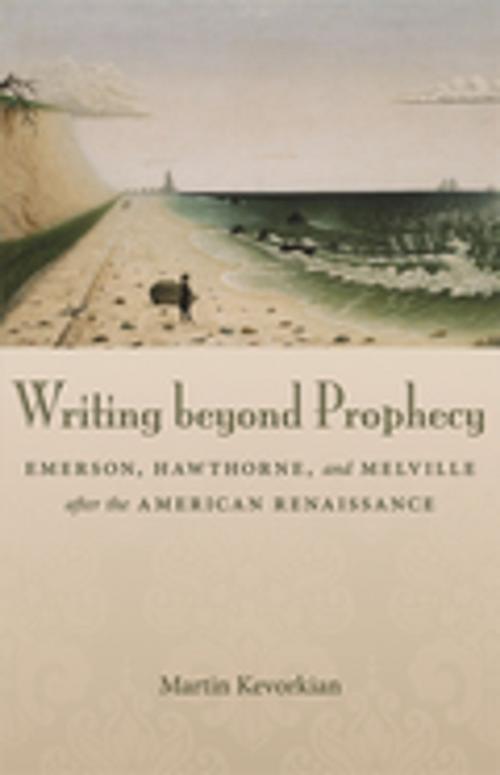Writing beyond Prophecy
Emerson, Hawthorne, and Melville after the American Renaissance
Fiction & Literature, Literary Theory & Criticism, American| Author: | Martin Kevorkian | ISBN: | 9780807147627 |
| Publisher: | LSU Press | Publication: | January 2, 2013 |
| Imprint: | LSU Press | Language: | English |
| Author: | Martin Kevorkian |
| ISBN: | 9780807147627 |
| Publisher: | LSU Press |
| Publication: | January 2, 2013 |
| Imprint: | LSU Press |
| Language: | English |
Writing beyond Prophecy offers a new interpretation of the American Renaissance by drawing attention to a cluster of later, rarely studied works by Ralph Waldo Emerson, Nathaniel Hawthorne, and Herman Melville. Identifying a line of writing from Emerson's Conduct of Life to Hawthorne's posthumously published Elixir of Life manuscript to Melville's Clarel: A Poem and Pilgrimage in the Holy Land, Martin Kevorkian demonstrates how these authors wrestled with their vocational calling.
Early in their careers, these three authors positioned their literary pursuits as an alternative to the ministry. By presenting a "new revelation" and a new set of "gospels" for the nineteenth century, they sought to usurp the authority of the pulpit. Later in life, each writer came to recognize the audacity of his earlier work, creating what Kevorkian characterizes as a literary aftermath. Strikingly, each author later wrote about the character of a young divinity student torn by a crisis of faith and vocation. Writing beyond Prophecy gives a distinctive shape to the late careers of Emerson, Hawthorne, and Melville and offers a cohesive account of the lingering religious devotion left in the wake of American Romanticism.
Writing beyond Prophecy offers a new interpretation of the American Renaissance by drawing attention to a cluster of later, rarely studied works by Ralph Waldo Emerson, Nathaniel Hawthorne, and Herman Melville. Identifying a line of writing from Emerson's Conduct of Life to Hawthorne's posthumously published Elixir of Life manuscript to Melville's Clarel: A Poem and Pilgrimage in the Holy Land, Martin Kevorkian demonstrates how these authors wrestled with their vocational calling.
Early in their careers, these three authors positioned their literary pursuits as an alternative to the ministry. By presenting a "new revelation" and a new set of "gospels" for the nineteenth century, they sought to usurp the authority of the pulpit. Later in life, each writer came to recognize the audacity of his earlier work, creating what Kevorkian characterizes as a literary aftermath. Strikingly, each author later wrote about the character of a young divinity student torn by a crisis of faith and vocation. Writing beyond Prophecy gives a distinctive shape to the late careers of Emerson, Hawthorne, and Melville and offers a cohesive account of the lingering religious devotion left in the wake of American Romanticism.















